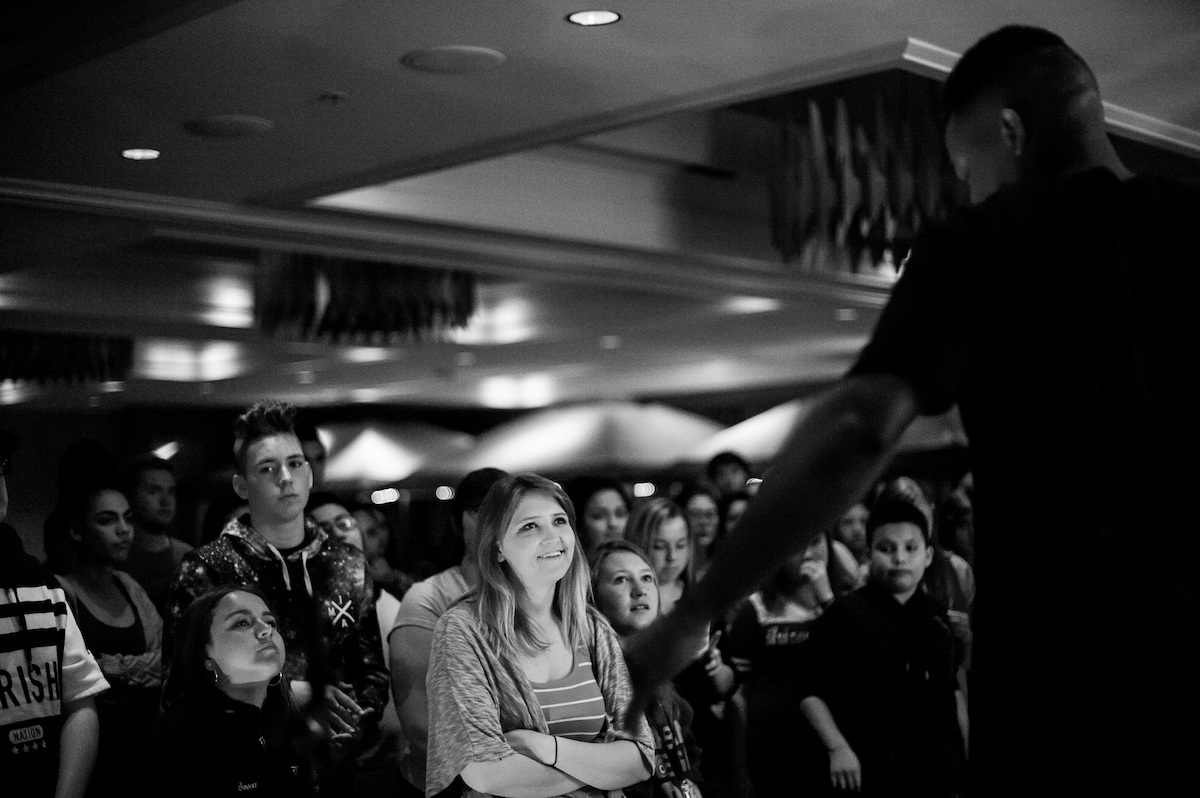20 stories of creative musical independence, Pt. 2: Gospel Lee
“Quality Hip Hop Your Mom Would Be Proud Of.”
Gospel Lee is a study in the power of knowing your niche, knowing what to do with it once you figure it out, and knowing how that guides your future.
For several years, this CD Baby artist fit his music career around his day job, until a missed flight after a performance led to a missed day of work. “I realized my heart was in my music and I needed to give it my all,” he recalls.
Lee, who lives in Oklahoma, quit his day job and started working the phones. What happened next reveals how this hip-hop artist found his niche, which then helped him carve out his own path.
1. Know Your Niche.
Lee’s tagline, “Quality Hip Hop Your Mom Would Be Proud Of,” came about as a T-shirt design. Over time, he realized that it was actually a true expression of where he fits in the world and it was also a great branding statement. As he says “If you can’t sum up who you are or what you are about, and make it plain on a t-shirt … well, that’s the ground floor.”
Gospel Lee performs faith-based and positive message hip-hop. This articulation of his brand naturally led to a deeper exploration of his niche. “It’s rap that you don’t have to turn off because your parent is in the room,” he says. Instead of trying to stand out in the world of hip-hop, Lee built his own distinctive brand.
2. Know Your Fan Demographic.
“Once you know who you are,” Lee says, “you can then start to think about who your ultimate fan is.”
If you understand who is most likely to respond to your music, you will gain a deeper clarity of how to reach them, how to speak to them, and what they want. He frequently looks at Facebook and Instagram analytics, and he began to notice a trend that matched what he observed at performances: His demographic is made up of 12-18 year old girls. They are the ones who stay after the show to meet him, who buy his merch, and post his photos on Instagram. “Honestly, the data is there, you just have to pay attention.”

Once you know who you are playing music for, you can ask:
- Where are the venues for that specific audience?
- How do I talk about my music to this crowd?
- What can I sell to them to add to their experience?
“My audience might buy a CD just as a keepsake of the show, but they aren’t going to listen to it,” explains Gospel Lee. So among other things, branded popsockets (phone grips) are in the works.
3. Play Unexpected Venues.
Lee has found an ingenious way to exist outside of the traditional booking treadmill in and around Oklahoma. In thinking about where to perform, the obvious choice for reaching teenagers is schools, youth groups, and churches. Lee had been booked in the past on a drug-free tour of schools. So he went back to his notes, pulled out old contacts, and got to work booking himself.
While everyone else is competing for the same slots at the same clubs or festivals, Lee is carving a path with little competition. Not all hip-hop artists can pitch a school, but his niche and his ideal audience make him optimal for a school show. His brand matches this unexpected venue.
4. Combine Free and Paid Shows.
The plus side of a school performance is that you have a captive audience. The downside of a school assembly is they usually don’t have money to pay performers. So when Lee tours, he books a show at a school and will also play a paid gig at a local church the same night. Win-win. The school gets a free show with a positive message (he doesn’t push his faith at public school performances). The church or youth group attracts a room full of teens there to see the cool performer they met earlier in the day. And Lee gets to expand his audience, sometimes with as many as 700 students at a time. Plus he gets paid a fee for the nighttime shows.
5. Play Towns Nobody Else Plays.
Since Lee lives in Oklahoma, you might think that he focuses most of his effort on the bigger cities. Not so. “There are a lot of small towns here,” he explains. “They are so small that nobody really plays there, but they all have a middle school and a high school.”
Once again, he turns common practice on its head. While small towns are often overlooked, Lee realized the economics aren’t working against him and he has no competition in these towns. Students find out about the nighttime show and many parents are happy to bring their kids to an event at a church.
6. Give Learning Your All.
“Bringing light into dark places and encouraging others to do what they love,” Lee explains, “…This is my why, and music is how I do it.”


Nenhum comentário :
Postar um comentário
O que você quer ver no próximo Blog? What do you want to see o next Blog?